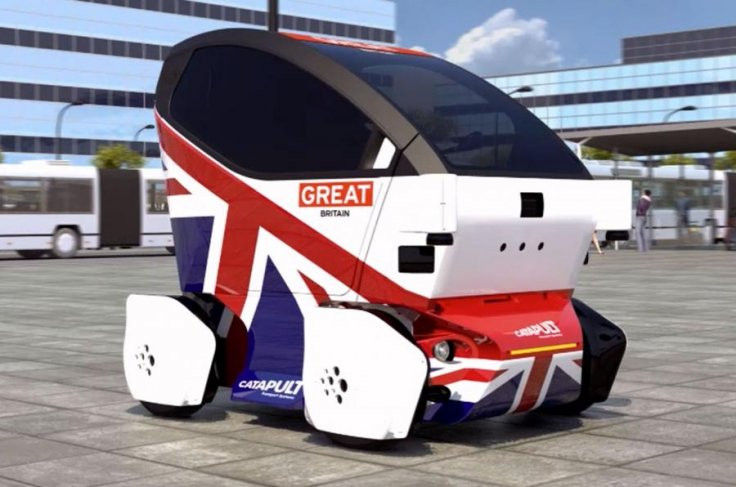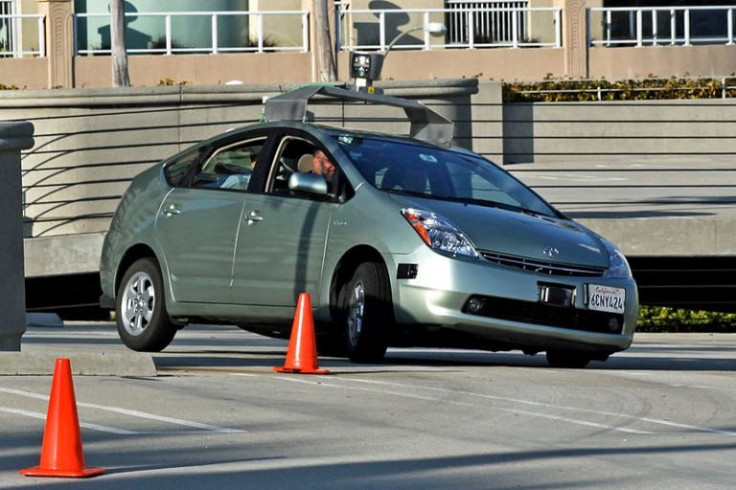How driverless cars of the future will become mobile living rooms for shopping, work and play
From driving machines to driverless digital platforms that trade horsepower for brainpower.
The age of driverless cars is upon us. From Google testing its self-driving vehicles in a number of American cities to Tesla's Autopilot already giving drivers a taste of what's to come, it's clear the flurry of activity and investment in this sector is changing what motoring will mean in the future.
Technology companies have been pivotal in autonomous driving development with traditional car manufacturers also gaining speed. Jaguar Land Rover recently announced it will test 100 autonomous vehicles on UK roads between 2016 and 2020, and Ford just completed a successful autonomous driving test in total darkness.
However, with the likes of Apple and Microsoft both revealing they are looking at the software behind self-driving cars, rather than the cars themselves, the automobile is in essence being reinvented as a technology platform.
This year's Mary Meeker Internet Trends report referred to autonomous vehicles as "mobile living rooms" manned by users instead of drivers. 'Passengers' in these cars will be engaging with an operating system first, and a vehicle second.
This is why companies such as Google and Apple are leading the charge and developing operating systems designed specifically for an in-car environment. What type of services will consumers take advantage of in connected cars? As they have done with the personal computer and smartphone, people will use cars to purchase goods and services.
The automobile is already becoming an extension of the smartphone, with companies such as Chevrolet equipping their cars with leading operating systems so that users can access their apps and even make voice commands while at the wheel.

How the in-car experience will be transformed
Once the car does become a 'mobile living room', consumers will be just as inclined to use their in-console screens the same way they use a smartphone on public transport – playing games, shopping online, streaming media content – and merchants will look to take advantage of this shift in behaviour.
It's worth considering gaming as an example. The popularity of augmented reality titles such as Pokemon Go is completely reshaping the video game industry. In a driverless car every rider has their hands free and can potentially be surrounded by screens in every direction, opening up a host of new opportunities for augmented gaming and game developers.
The interconnectivity of devices is accelerating, and in a fully connected environment automobiles will enable a whole range of new, convenient services for their owners. The time is already here when automobiles can automatically locate petrol or charging stations when juice is running low and pay for a top-up.
Forgetting your wallet will be a thing of the past as the car could become the wallet. If drivers need a place to stay the night they could get hotel recommendations directly from their car's operating system and have it book their accommodation with a simple voice command.
Security, safety and threat from hacking
There remain of course a number of issues to be resolved before autonomous vehicles fully take over, the most obvious of which is driver safety. Concerns around the reliability of self-driving technology from Google and Tesla have made headlines in recent months, and despite uncertainty over whether the vehicles themselves are to blame it will take much more testing before both governments and consumers embrace hands-free driving completely.

Data security is also a major focus, particularly for consumers. Could these cars driven by software and the devices hooked up to them be susceptible to hacks or payment fraud? Both tech companies and car manufacturers will have to work together to ensure customers are guaranteed the hardened levels of security as well as the flexibility to keep their details from certain apps and services.
Those hurdles will be cleared, however, perhaps sooner than many expect. Vehicles will continue to transition from pure driving machines to digital platforms, and in the process we will see the traditional signs of vehicle quality, such as speed, horsepower and styling, become less important to riders than the services they can access between points A and B.
With people out of the driver's seat and ready to spend, merchants and developers will look to tap into this new generation of consumers on the go.
This article was submitted by Kevin Dallas, Chief Product Officer, global eCommerce business at Worldpay.
© Copyright IBTimes 2025. All rights reserved.





















